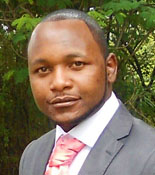Project Year
2015
Region(s)
South Africa
Country(ies)
Zimbabwe
Project Description
At the peak of the collapse of the Zimbabwean economy in the year 2008, inflation levels reached a world record of 250 million percent. This led to the total collapse of the Zimbabwean currency and the whole of the formal money market and the rise of the informal money changing systems. The adoption of the multi-currency system in the year 2009 following the budget announcement by the then Minister of Finance was defined as a watershed period in terms of monetary policies not only for the country but the whole of Southern Africa. Multicurrency was defined as an adoption of foreign currencies that included the United States dollar, British pound, South African rand and Botswana Pula as official currencies of Zimbabwe operating in the same economy. The Zimbabwean dollar was abolished through the adoption of this system. In this study, we ask the following questions: What were the new socio-economic dynamics that emerged in balancing and negotiating these currencies? What new configurations were created by people in order to make sense of the prevailing system money ecosystem? What new narratives were formed in the monetary interaction between rural and the urban population in Zimbabwe, and how does mobile money interface and influence traditional perceptions on money and the value it has? The study will make use of detailed comparative ethnographic engagements between Harare (Urban setting) and Chivi (Rural Setting). The study will facilitate an understanding of the Zimbabwean multi currency money ecosystem through situating the explosion of mobile money and how it has shaped and reshaped perceptions of people around money and its value.
Researcher(s)
Innocent Tonderai Mahiya, and Simbarashe Gukurume
About the Researcher(s)
 Innocent Tonderai Mahiya is a final year PhD student at Rhodes University studying food security among the
small scale farmers in Hwedza. Innocent holds a Masters in Sociology and Social Anthropology
both from University of Zimbabwe. He is currently the Departmental Chairperson at
Women’s University in Africa where he also teaches Introduction to Sociology, Qualitative
Research Methods among other courses. He has been a lecturer in Sociology Department
since 2010 to date. Innocent is well grounded in livelihoods of the poor and social
dynamics created by uncertainties in both rural areas and urban areas having spent
the last three years preparing for a PhD in the same area. His research interests
include social dynamics, money and livelihoods of the poor and qualitative research
among other areas.
Innocent Tonderai Mahiya is a final year PhD student at Rhodes University studying food security among the
small scale farmers in Hwedza. Innocent holds a Masters in Sociology and Social Anthropology
both from University of Zimbabwe. He is currently the Departmental Chairperson at
Women’s University in Africa where he also teaches Introduction to Sociology, Qualitative
Research Methods among other courses. He has been a lecturer in Sociology Department
since 2010 to date. Innocent is well grounded in livelihoods of the poor and social
dynamics created by uncertainties in both rural areas and urban areas having spent
the last three years preparing for a PhD in the same area. His research interests
include social dynamics, money and livelihoods of the poor and qualitative research
among other areas.
 Simbarashe Gukurume is a doctoral fellow at the Institute for the study of Humanities in Africa (HUMA),
University of Cape Town. He holds a BSc degree in Sociology and an M.Sc in Sociology
and Social Anthropology from the University of Zimbabwe. From 2010 -2014, he worked
as a lecturer at Great Zimbabwe University in the department of Sociology and Social
Anthropology. He has been a Graduate Teaching Assistant at University of Zimbabwe
(2008-2010). His research interests focus more broadly on money and its intersections
with prosperity gospel, consumerism and livelihoods. His current research project
focuses on mobile money transactions in a multi-currency environment in Zimbabwe.
Simbarashe Gukurume is a doctoral fellow at the Institute for the study of Humanities in Africa (HUMA),
University of Cape Town. He holds a BSc degree in Sociology and an M.Sc in Sociology
and Social Anthropology from the University of Zimbabwe. From 2010 -2014, he worked
as a lecturer at Great Zimbabwe University in the department of Sociology and Social
Anthropology. He has been a Graduate Teaching Assistant at University of Zimbabwe
(2008-2010). His research interests focus more broadly on money and its intersections
with prosperity gospel, consumerism and livelihoods. His current research project
focuses on mobile money transactions in a multi-currency environment in Zimbabwe.
Read Mahiya and Gukurume's Final Report
Link to the blogpost: Negotiating and Converting Money in Zimbabwe's Multicurrency Environment




connect with us